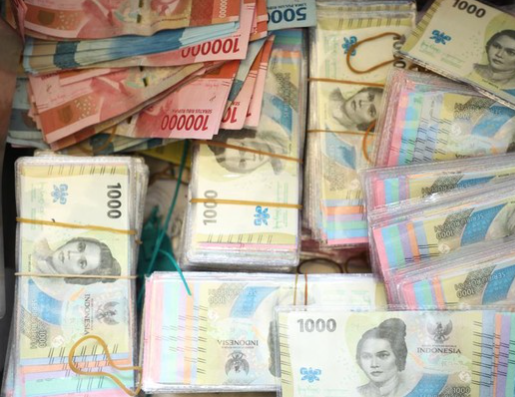
STRATEGIC ASSESSMENT. This month’s commemoration of Indonesia’s 78th independence is a timely moment to reflect on its journey to achieve the vision of “Indonesia Maju” by its centennial in 2045. Despite a rocky journey over the past decade, there have been remarkable milestones in some development aspects, which provide a solid runway for Indonesia’s economy to take off. Previously dubbed the “fragile five” due to a large current account deficit in 2013, Indonesia has become a strong emerging economy with exemplary macroeconomic management. Marking a solid post-pandemic economic recovery, this year Indonesia has regained its status as an upper-middle-income country with a 2022 per capita income of $4,580.
Foreign investors notched their longest selling stretch of Indonesian debt in 10 months as a surge in US Treasury yields made investors turn away from assets in the emerging market. Global funds sold a net $323.9 million of Indonesian bonds on Aug. 23, a sixth straight day of selling, according to finance ministry data released.
Finance Minister Sri Mulyani revealed several points agreed upon at the ASEAN Finance Ministers and Central Bank Governors Meeting (AFMGM). In this meeting, ASEAN finance ministers and central bank governors discussed how the bloc can strategically maintain momentum and collectively navigate the challenges that are still happening, including increasing geopolitical tension, increasing debt pressure and limited policy space, global fragmentation, issues of food and energy security, declining levels of global trade, threats to technological advances, and risks of climate change. The Minister also called for ASEAN to stay united and neutral to demonstrate that it stands for cooperation and progress to avoid becoming a battleground for influence amid the great power rivalry between the United States, China, and Russia.
The Indonesian economy has been hailed as being resilient in the first half of 2023. In the face of geo-economic fragmentation and de-globalization gripping the global economy, Indonesia’s gross domestic product (GDP) grew 5.1 percent in the first half of 2023, strong growth by any measure. Inflation fell to a historic low, pushed down by a combination of good harvests in the agriculture sector, intensive government intervention in smoothing out food supply in regions and rupiah appreciation. A combination of high growth and low inflation is a coveted objective for every decisionmaker. Net portfolio investment flows turned into a positive US$3 billion in the first quarter, after a negative of $9 billion in 2022. The rupiah appreciated 2.4 percent, while foreign direct investment (FDI) flow was steady at above $3 billion every quarter.
Indonesia is among the few countries that have managed to recover quickly from the global crisis in recent years, President Jokowi said in his address on the 2024 state budget bill and its financial notes before the House Plenary Session in Jakarta. According to him, Indonesia has managed to overcome a major crisis, namely the COVID-19 pandemic. In the first half of 2023, the national economy grew by 5.1 percent, with inflation controlled at 3.1 percent as of July. Indonesia’s fiscal policy has also been one of the most effective tools in dealing with the pandemic and maintaining economic growth, he said. He said that Indonesia managed to restore its fiscal deficit to below 3 percent of the gross domestic product (GDP) one year earlier than the initial plan. Indonesia’s debt ratio is also one of the lowest among the G20 and ASEAN countries and fell from 40.7 percent of the GDP in 2021 to 37.8 percent in July 2023.






